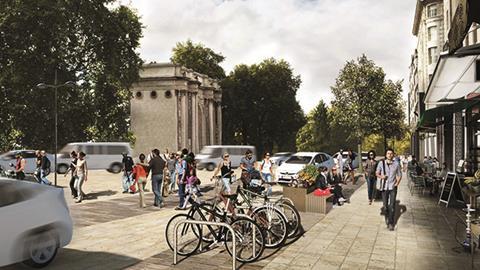People always ask me how digital innovations are shaping our strategy and the subject was also a core topic of conversation at this year’s EPRA conference.

Real estate companies are thinking seriously about where future advancements in technology will take us. Where the office market is concerned, the big question is what our workforce will look like in the next two decades when, according to a prediction by Deloitte, 35% of today’s UK jobs will be automated.
In this digital age, with more and more business conducted online, the culture of working and business relationships have undeniably changed and permanently so.
However, real estate companies - and indeed all businesses - must continue to think about how they interact with customers and ensure that, even in a world driven by technology, their relationships still retain the personal touch.

The marketplace for commercial landlords and tenants can now be entirely online - an internet search for space, viewing images of the building, an exchange of emails and perhaps even a virtual tour can all be done from behind a desk.
It’s all very well to get to know contacts over email, phone or social media, but it’s not enough. Having the right spaces, providing the best services and installing the best technology require a more personal touch.
Of course there’s a time and a place for emails but relationships will always be forged most successfully face to face.
The successful execution of such an operation still relies on placing people at the heart of things. Of course, there’s a time and a place for emails and conference calls but relationships will always be forged most successfully face to face. A relationship formed over email is more forgettable than one built in real life, however many emojis are exchanged.
For any other service industry, this will not come as a shock. However, real estate companies, whether they deal directly with their customers like we do, or rely on agents, have always focused on the product rather than their brand and service.
Risk becoming ‘just another company’
At Workspace, we have spent a long time getting our product right to suit our customers’ needs but we have also focused on providing the best customer service. Our buildings don’t have receptionists in the traditional sense; instead our centre managers are hosts. They are brand ambassadors and an integral part of the building and the fabric of customers’ daily lives.
Many companies, like us, have developed apps or platforms to help manage customers’ needs and there is no doubt these products increase operational efficiency, improve margins and reduce man-hours. However, the more technological services that are created, the more impersonal things become and landlords risk becoming “just another company” rather than a brand their customers know and trust.

Having eyes and ears on the ground allows us to actively manage our portfolio. We also hear from our customers directly, be that about expansion plans or a complaint and can act quickly to accommodate them and earn our customers’ confidence and loyalty.
If space is the foundation, location is the choice and technology is the requirement, people and relationships will be the differentiators for property companies in the future. This does not just apply to companies like us. It will become increasingly important for companies who rely on agents, and even the agents themselves.
Those who most successfully manage these four factors, especially the relationships, will be the winners in their field.
Jamie Hopkins is chief executive of Workspace






























No comments yet